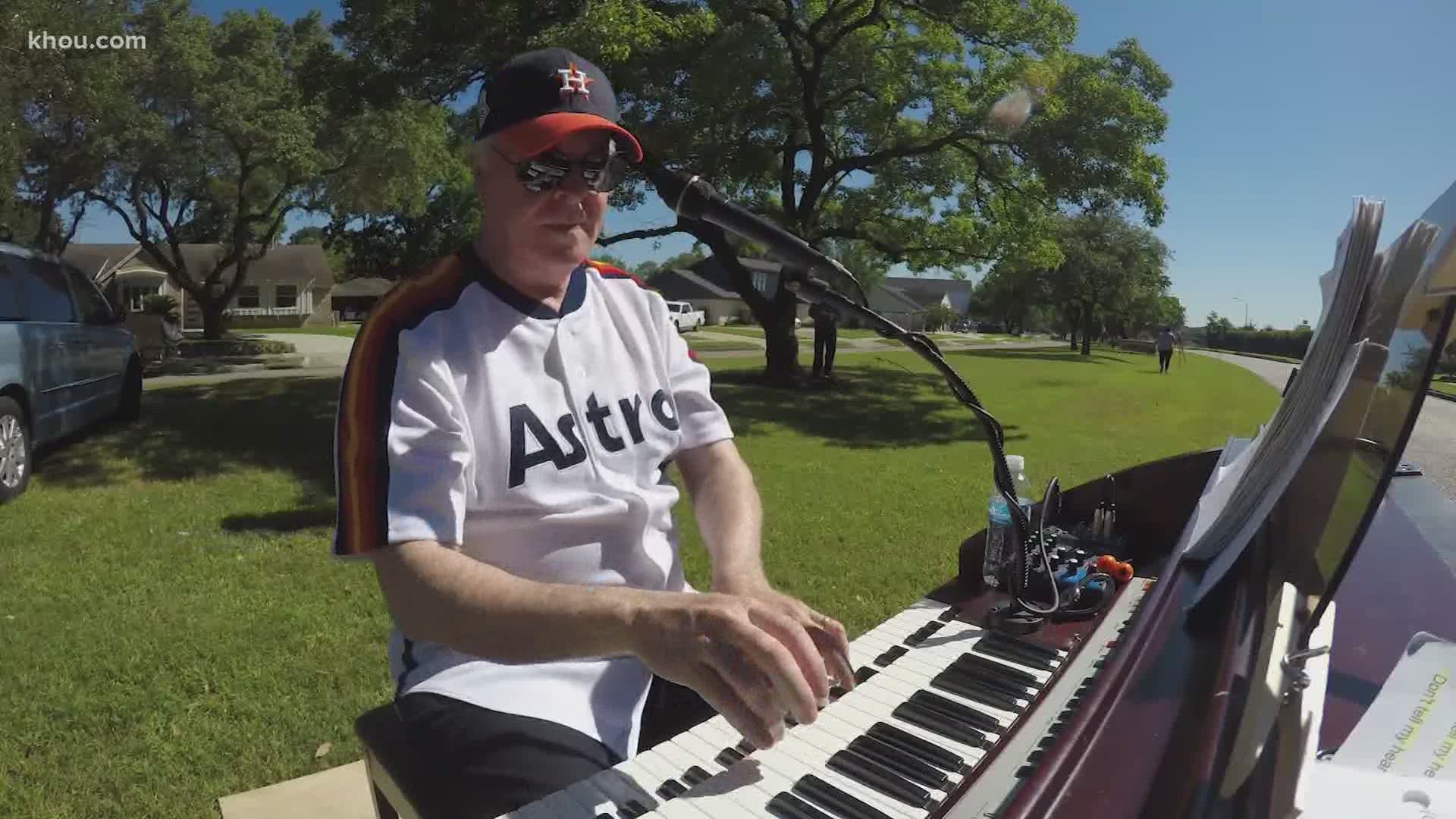HOUSTON — Visitors still are not allowed inside nursing homes and assisted living facilities. But one Astros fan has figured out a way around that.
In the middle of a median in Meyerland, Jim Connors honored his friends with a public display of affection.
"I normally entertain for these folks. This is what I do for a living. I do 40-50 shows a month in retirement communities," Connors said. "I haven’t seen these folks in a couple of months."
The State of Texas temporarily prohibited visits to nursing homes and assisted living facilities in March, in an effort to protect the elderly from the coronavirus.
Connors isn't allowed inside The Village and Meyerland, but with a little creativity and on a bright, sunny day, the assisted living facility was able to help Connors setup a 45 minute concert, outside.
Connors played the organ inside the Astrodome for the Houston Astros during the 1980s. Thursday was his first time ever playing along a city street.
"So, this little bit of interaction today, I am really excited to be able to be here," he said.
With seniors dancing in the windows and on patios, the feeling was mutual.
Orbit, the Astros mascot, made a surprise appearance.
"I really, really, really feel for my folks here," Connors said. "Something to bring a smile to their hearts."
Jim Connors really misses his friends. They miss him, too. But instead of waiting for things to go back to normal, he rolled out his 228-pound organ and sang his heart out.
This story idea stemmed from a tip KHOU Reporter Melissa Correa received on Nextdoor. To connect with Melissa on Nextdoor, click here.
Coronavirus symptoms
The symptoms of coronavirus can be similar to the flu or a bad cold. Symptoms include a fever, cough and shortness of breath, according to the Centers for Disease Control. Some patients also have nausea, body aches, headaches and stomach issues. Losing your sense of taste and/or smell can also be an early warning sign.
Most healthy people will have mild symptoms. A study of more than 72,000 patients by the Centers for Disease Control in China showed 80 percent of the cases there were mild.
But infections can cause pneumonia, severe acute respiratory syndrome, kidney failure and even death, according to the World Health Organization. Older people with underlying health conditions are most at risk for becoming seriously ill. However, U.S. experts are seeing a significant number of younger people being hospitalized, including some in ICU.
The CDC believes symptoms may appear anywhere from two to 14 days after being exposed.
Human coronaviruses are usually spread through...
- The air by coughing or sneezing
- Close personal contact, such as touching or shaking hands
- Touching an object or surface with the virus on it, then touching your mouth, nose or eyes before washing your hands.
Help stop the spread of coronavirus
- Stay home when you are sick.
- Eat and sleep separately from your family members
- Use different utensils and dishes
- Cover your cough or sneeze with your arm, not your hand.
- If you use a tissue, throw it in the trash.
- Follow social distancing
Lower your risk
- Wash your hands often with soap and water for at least 20 seconds. If soap and water are not available, use an alcohol-based hand sanitizer.
- Avoid touching your eyes, nose, and mouth with unwashed hands.
- Avoid close contact with people who are sick.
- Clean and disinfect frequently touched objects and surfaces.
- If you are 60 or over and have an underlying health condition such as cardiovascular disease, diabetes or respiratory illnesses like asthma or COPD, the World Health Organization advises you to try to avoid crowds or places where you might interact with people who are sick.
Get complete coverage of the coronavirus by texting 'FACTS' to 713-526-1111.

